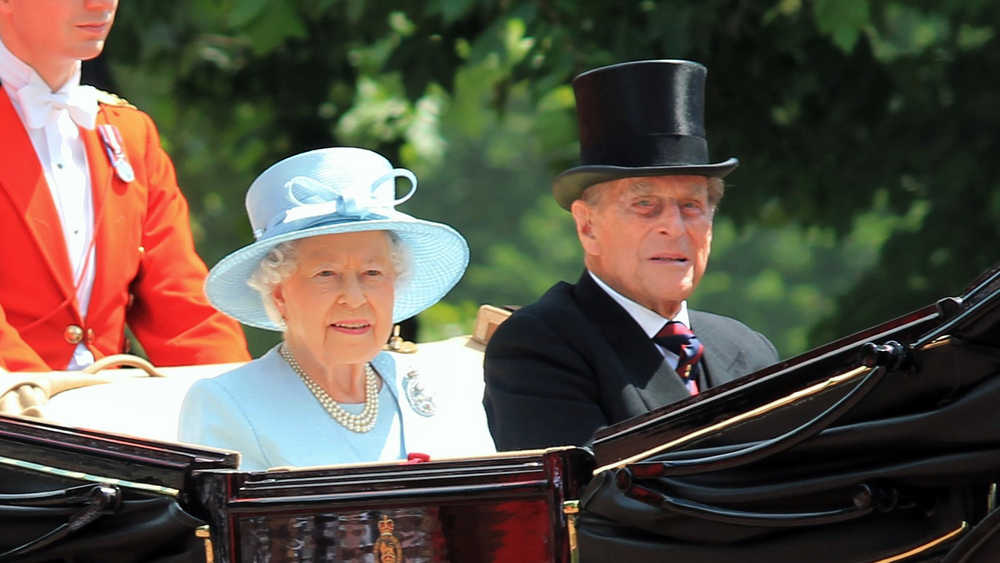Prince Philip, Duke of Edinburgh, who died early on Friday at Windsor Castle, just a couple of months short of his 100th birthday, will be remembered mainly for loyally supporting the Queen during their 73-year marriage.
She once said that Philip “has, quite simply, been my strength and stay all these years”.
To Indians, however, he was the unreformed prince of gaffes. There are enough diplomatic indiscretions to compile a whole book.
In 1997, for example, during the last of his four trips to India, he accompanied the Queen to Jallianwala Bagh in Amritsar where he suggested that the accepted death toll in the 1919 massacre — 379 as a minimum but closer to 1,000 according to other sources —was “a bit exaggerated”. He had apparently been given this intelligence by a descendant of Brigadier-General Reginald Dyer.
In 1999, when he visited a electronics factory in Edinburgh and spotted a fuse box with protruding wires, he said the assembly looked “as if it was put in by an Indian”.
After race relations officials protested his remarks were offensive, Buckingham Palace immediately issued an apology: “The Duke of Edinburgh regrets any offence which may have been caused. With hindsight he accepts that what were intended as light hearted comments were inappropriate.”
When he saw a badge with the name, “Atul Patel” at a Buckingham Palace reception in 2009, he could not resist a characteristic wisecrack: “There’s a lot of your family in tonight.”
The irony is that he was just as much of an immigrant as Patel. He was a Greek with a lot of German blood, which made matters uncomfortable for his family when Britain, his adopted homeland after his marriage to Princess Elizabeth, went to war against the Nazis.
Other nationalities got it worse. In 1986, during a visit to China, he warned a group of British students: “If you stay here much longer, you’ll all be slitty-eyed.”
Prince Philip’s great quality was to learn to walk behind the Queen. In a domestic setting, he wore the trousers, it is said, but in public, he never ever sought to upstage the monarch.
It was his uncle, Lord Mountbatten, an ambitious man who would become the last Viceroy of India, who encouraged the match. Philip, a member of the Greek royal family, was training at the Britannia Royal Naval College in Dartmouth when he met 13-year-old Princess Elizabeth.
She had been taken along by her father and immediately developed a schoolgirl crushed which blossomed into romance and love.
George VI had become king after the abdication of his brother, Edward VIII, in 1936.
Their marriage is as old as Indian independence. The couple got engaged on July 9, 1947, and married at Westminster Abbey on November 20, 1947, when Elizabeth was 21.
She succeeded to the throne after the death of George VI on February 6, 1952, when they were staying at a forest sanctuary, Treetops, during an official tour of Kenya. The story is often told how she went up the lodge the previous night as a princess and came down the following morning as Queen. There exists film footage of Philip breaking the news to his devastated wife that her father had died.
Philip’s passing emphasises just how much the monarchy has changed, demonstrated most recently by allegations of racism in the royal household levelled by Prince Harry and Meghan.
The Queen, who will turn 95 on April 21, 2021, issued a simple message which was pinned to the gates of Buckingham Palace on Friday: “It is with deep sorrow that Her Majesty The Queen has announced the death of her beloved husband, His Royal Highness The Prince Philip, Duke of Edinburgh. His Royal Highness passed away peacefully this morning at Windsor Castle.”
Philip was allowed to return to Windsor Castle on March 16 after a month in hospital for an infection and a pre-existing heart condition. A couple of years ago, Philip reluctantly gave up driving after he was involved in a serious car accident.
Among the tributes that have poured in for Philip from around the world was one from Indian Prime Minister Narendra Modi: “My thoughts are with the British people and the Royal Family on the passing away of HRH The Prince Philip, Duke of Edinburgh. He had a distinguished career in the military and was at the forefront of many community service initiatives. May his soul rest in peace.”
“All too often, I fear, Prince Philip has had to listen to me speaking,” the Queen said fondly in the 1997 Golden Wedding address.
“Frequently we have discussed my intended speech beforehand and, as you will imagine, his views have been expressed in a forthright manner.”
Philip replied in his toast to his wife: “I think the main lesson we have learnt is that tolerance is the one essential ingredient in any happy marriage. You can take it from me, the Queen has the quality of tolerance in abundance.”
Philip is survived by the Queen and four children – three of them with broken marriages — eight grandchildren and 10 great-grandchildren.
At such moments in British history, the nation invariably turns to the Prime Minister to find fitting words that can — in this case — sum up the sense that the old style monarchy is vanishing for ever.
“Prince Philip earned the affection of generations here in the UK, across the Commonwealth, and around
the world,” said Boris Johnson. “Like the expert carriage driver that he was, he helped to steer the Royal
Family and the monarchy so that it remains an institution indisputably vital to the balance and happiness of our national life.”











